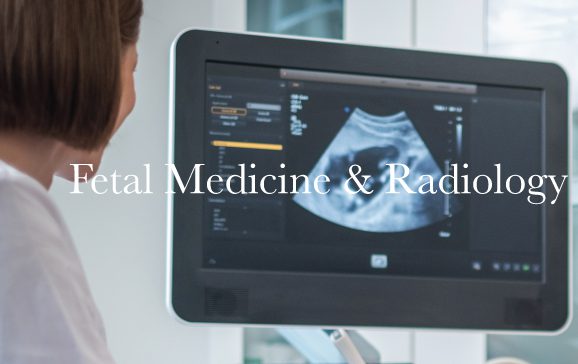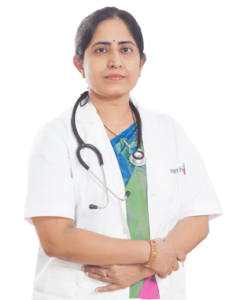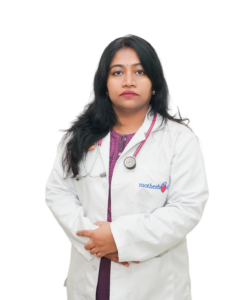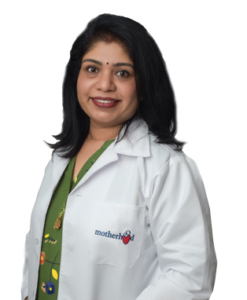

Early Pregnancy
The presence of a new life healthily growing inside you is monitored via an early pregnancy scan – also called viability or dating scan – where the doctor confirms the pregnancy, establishes an estimated due date, and gives you more accurate details on your pregnancy. Our doctors guide you through the entire process of pregnancy from start to finish.
In the sixth week of your pregnancy your baby would have grown to the size of a pea. The eyes and ears will start developing, and the baby’s heartbeat will be around 100–160 times a minute. All this is indicated to you via some symptoms like morning sickness, mood swings, frequent urination and more, but to confirm that your pregnancy is healthy, a visit to your healthcare specialist is a must.
What are Early Pregnancy Scans?
Pregnancy can be seen on a scan from the 6th week (halfway through your first trimester), but doctors recommend that these early scans to be done between the 7th and12th week to ensure that your baby is growing absolutely normally. This is recommended to all women who may be suspecting pregnancy, particularly if she has been experiencing pain or has been bleeding during her pregnancy.
Early pregnancy scans are done to confirm a pregnancy, to know when exactly you conceived, to check if the baby is growing healthily, and so much more.
What are the reasons for having Early Pregnancy Scans?
Early pregnancy scans are done to confirm:
- Single or multiple pregnancies (how many embryos are present)
- The viability of a pregnancy
- The presence of a heartbeat
- The gestation of pregnancy (number of weeks) by identifying the size of the pregnancy sac or the embryo
- If the pregnancy is healthy. This is done by ruling out ectopic pregnancy and checking if the pregnancy sac is located within the uterus or not.
- The presence of any internal bleeding
How are Early Pregnancy Scans done?
An early pregnancy scan can be done either transabdominally or transvaginally. Transabdominal early pregnancy scans are performed in 7-11 weeks of the pregnancy and are done over the tummy. Commonly these are known as ultrasound scans and are carried out by highly qualified professionals (sonographers) in the hospital.
During the process, the sonographer will ask you to drink a glass of water for a good view of your baby (as bladder helps the ultrasound echoes to reach your womb) and lie on the bed. Then he/she will apply some gel on your tummy and move a hand-held device (transducer) over the abdominal skin to pick up images of the baby. If the images are not clear, then the sonographer will ask you to go for a transvaginal scan.
During the transvaginal scan, the sonographer places a vaginal transducer comfortably inside your vagina (after lubricating it with plenty of gel). Once the transducer is inside, sound waves bounce off the internal organs and transmit pictures of your pelvis (inside of it) onto a monitor.
Why Motherhood?
Motherhood provides high quality medical services, delivered by our highly accomplished clinicians and nursing staff, and bolstered by the latest technologies and treatment protocols. Boasting of state-of-the-art NICUs, Labour Suites, Adult ICUs, Operative Rooms, Laboratory Services, and a 24/7 pharmacy, Motherhood offers you the most comprehensive healthcare you could desire.
Our Obstetric services include:
- Antenatal care (before birth)
- Intrapartum care (during labour and delivery)
- Postnatal care (after birth)
Therefore, there is more than one reason to trust us! Motherhood has got your back during the entire journey of your pregnancy and after that. Our team of professionals can guide you through the whole process of pregnancy from start to finish.
Book your appointment today with our experts, or send us an inquiry.
First trimester /NT detail
Early Pregnancy/Viability scan: An early pregnancy scan is very important as it confirms the pregnancy and establishes a due date. It is a transabdominal scan (done over the tummy) and is performed between 7-11 weeks of the pregnancy. It also helps in confirming the exact number of embryos, in ascertaining the presence of a heartbeat, and in the detection of internal bleeding, if any.
NT scan: A Nuchal Translucency (NT) Scan is an ultrasound that measures the amount of fluid collected under the skin present at the back of the baby’s neck. It is usually done between 11-14 weeks of the pregnancy. The significance of the NT scan is that it helps in determining the likeliness of Down’s syndrome.
Transvaginal scan (TVS): It is an internal examination in which the specialists insert an ultrasound probe of about 2-3 inches into the vaginal canal. This test is performed between 6-10 weeks of pregnancy and is extremely useful in the diagnosis of ectopic pregnancy, cysts, fibroids, pelvic infection, etc.
Second-Trimester Scan
Anomaly Scan: Also known as the mid-pregnancy scan, this test is usually performed between 18-21 weeks of the pregnancy. Motherhood’s expert team of doctors check for the development of the baby and the position of the placenta in this scan. The doctors carefully examine the baby’s head, face, heart, abdominal walls, kidneys, placenta, and amniotic fluid, and check for healthy development. Various diseases or conditions like cleft lip, brain injuries, etc. can be determined with an anomaly scan.
Growth scan: As the name suggests, this diagnostic scan is to check for the baby’s overall development. Parameters like the baby’s growth, weight, the quantity of amniotic fluid, the position of the placenta and so on are looked up in this scan. It is also a highly recommended procedure if you’ve had complications in previous pregnancies or if you have medical conditions like diabetes or high blood pressure.
Third-Trimester Scan
Interval Growth Scan: Similar to a growth scan, the interval growth scan is usually performed between 28-32 weeks of pregnancy. This scan studies the biophysical profile of the baby, which includes the movement of arms/legs (stretches and flexes), breathing movements, and the opening and closing of hands. Motherhood’s extremely qualified team of professionals is well experienced at performing such tests, and at treating irregularities, if any turn up.
Term Scan: Done at around 36 weeks of pregnancy, this is the final test to ensure that the baby is in good health. The doctors check for the exact location of the baby and the position of the placenta. Other parameters related to the baby’s health, like the amount of amniotic fluid and so on, are also checked. If everything is medically fit, the baby is all set for the delivery.
Mid Trimester Detail
What is a Mid-Trimester Scan?
The mid-trimester scan is usually carried out between 18 to 21 weeks of the gestational period. The scan is done to check for major physical abnormalities in the baby. It is also called an anomaly scan and it takes 2-D black-and-white image which only gives a side view of the baby. The image shows the baby’s face and hands. The main aim of the scan is to check that the baby is developing normally.
What problems does the scan look for?
This scan looks in detail at the baby’s bones, heart, brain, spinal cord, face, kidneys, and abdomen. The sonographer will look specifically for 11 conditions, some of which are:
- Anencephaly
- Open spina bifida
- Cleft lip
- Diaphragmatic hernia
- Gastroschisis
- Exomphalos
- Serious cardiac abnormalities
- Bilateral renal agenesis
- Lethal skeletal dysplasia
- Edwards’ syndrome or T18
- Patau’s syndrome or T13
What happens during the anomaly scan?
The scan is carried out by sonographers in a dimly lit room. A gel is applied to the abdomen and the sonographer examines the baby’s body with a probe. Having a scan doesn’t hurt but it can be slightly uncomfortable. The scan usually takes 30 minutes. You may need to have a full bladder when you come for the appointment.
DOCTORS

Dr. Kavya Krishna Kumar
MBBS, FMAS, MS
Consultant - Obstetrics & Gynaecology
Alwarpet, Chennai

Dr. Sireesha Reddy
MBBS, CCT, MD (OBG), FRCOG
Consultant - Obstetrics & Gynaecology
Bangalore, Hebbal

Dr. Dhanalakshmi R.
MBBS, DNB (Paediatrics), MRCP CH, Followership in Neonatal Neonatal medicine(UK), PGPN (USA), IPPN, ACLP
Consultant - Neonatology & Paediatrics
Bangalore, HRBR Layout






























































 Toll Free Number
Toll Free Number







